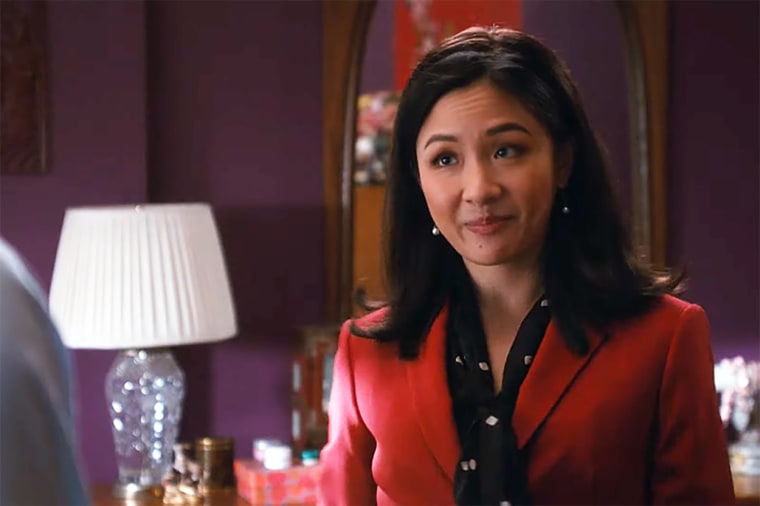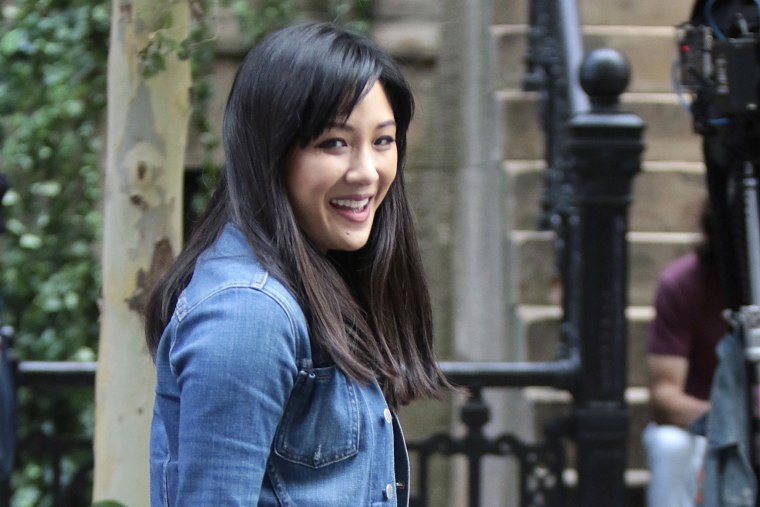“Fresh Off the Boat” actress Constance Wu’s recent revelation that she attempted suicide after receiving a firestorm of hate on social media in 2019 has some examining the undue pressures placed on women of color in the spotlight, experts say.
At the time, Wu, who starred as the matriarch Jessica Huang in the groundbreaking Asian American show, had expressed disappointment after the sitcom was renewed, tweeting that she was “so upset right now that I’m literally crying,” among other remarks.
The comments set off a deluge of internet hate, with the actress being labeled “ungrateful.” Wu deleted the tweets, apologized and left social media for three years, remaining out of the spotlight. However on Thursday, she revealed that after “a few DMs from a fellow Asian actress told me I’d become a blight on the Asian American community, I started feeling like I didn’t even deserve to live anymore.”
Sociologists say that the aggressive criticism that followed Wu highlights some glaring double standards in Hollywood.
Many across social media pointed out that when other high-profile actors, like Robert Pattinson, made digs at projects that had propelled them to stardom, they were portrayed as more relatable, rather than becoming the target of criticism. When they’ve made moves to further their own career ambitions, like Wu said she had hoped to do, they were met with respect, the sociologists said.

The contrast shows the unwarranted pressure on people of color, particularly women, to be agreeable, unwavering representatives of their community, experts say. They point to racialized sexism, the scarcity of Asian American roles in the industry at the time, and misplaced anger as parts of the problem.
Catherine Ceniza Choy, author of “Asian American Histories of the United States,” points out that countless actors, many of them white, have expressed disappointment or regret over roles and projects they’ve been involved in. The reaction to Wu’s comments most likely stems, in part, from stereotypes that Asian women are submissive and demure, in addition to the patriarchal values entrenched within many Asian cultures, she added.
Choy said that the collision of these factors creates an environment in which Asian women are expected to be obedient to multiple circles in society. They may refrain from being authentically themselves, she said, and those who are not seen as “compliant” can quickly fall out of favor.
“There’s this intersection of racism and gender and the kinds of burdens and expectations of Asian and Asian American women to be likable,” Choy said. “If you present yourself in a way that might be construed as self interested or just being upset, it goes against the grain of both broader racial, societal and Asian and Asian American community expectations. That’s a very tough line to walk.”
Nadia Kim, professor of Asian and Asian American studies at Loyola Marymount University, similarly said that much of the hate from fellow Asian Americans shows that Wu “violated” the idea that she should “defer to the Asian American community writ large.”
“We’ve got to really take seriously internalized sexism and misogyny within our own community,” Kim said.
The backlash, experts say, is also indicative of how women of color, particularly those who have power and influence, are not “allowed” to be complicated, imperfect human beings. Mistakes, or expressions of emotion, are often interpreted as character flaws rather than simply mistakes or natural human reactions.
“In the United States, white people get to be fully human, and ‘fully human’ means they get to show all facets of themselves as human beings — the good, the bad, the ugly, the complicated, complex, the heroic, the cowardly,” Jennifer Ho, a professor at the University of Colorado Boulder, said.
The reality is, Choy said, that Wu deserves the benefit of being seen as an artist.
“This is where someone like Robert Pattinson and Chris Evans are thought of as individual actors who are popular but who are also part of a craft,” she said. “With an actress like Constance Wu, that’s not the first thing that may come to mind. It’s that burden of representation for a much broader community,”
The outrage at the time, the scholars acknowledge, is somewhat understandable. “Fresh Off the Boat,” which premiered in 2015, aired during an era in which Asian Americans occupied so few speaking roles and barely any lead roles on TV. Research reveals that the majority of shows on air during the 2015-16 year failed to feature a single Asian American or Pacific Islander in the main cast at all.
In that environment, the sitcom proved groundbreaking and provided rare opportunities for Asian Americans both in front and behind the camera. And thus, the show carried more weight for many.
“She had every right to have those feelings,” Ho said. “But to the rest of us, it looked like somebody who wasn’t fully appreciative of this opportunity. … I think there are so many Asian American actors who probably would have happily taken on that role.”
“The blame and the anger and the unwillingness to forgive is misplaced.”
NADIA KIM
The fact that Wu took to social media to vent her disappointment naturally opened her up to the court of public opinion, scholars said. And many viewers felt that Wu wasn’t only being disrespectful to the community, but to Asian Americans whose livelihoods and careers depended on the show. But Kim pointed out that while Wu’s behavior wasn’t the most sensitive way of expressing her opinions, much of the vitriol was misdirected: Wu is not the primary reason why Asian Americans have so few opportunities or examples of representation to look to.
“Who are we going to blame for the vast underrepresentation of a certain group and certain institutions? Are we going to blame her, or should we be blaming those who are in positions of power that have made it such that we have almost no East or Southeast Asian family sitcoms,” Kim said. “The blame and the anger and the unwillingness to forgive is misplaced.”
For equity to be achieved in the industry, actors like Wu need to be given the grace to make mistakes, or even behave like an “asshole or a diva,” as white actors do, Ho said. And while criticism is valid, she added that there’s a way to do so constructively.
“We can disagree with that statement,” Ho said, “but we don’t have to attack her.”
If you or someone you know is in crisis, call the National Suicide Prevention Lifeline at 800-273-8255, text HOME to 741741 or visit SpeakingOfSuicide.com/resources for additional resources.
